Friendship in a Cup: Brewing Connection and Sharing the Gospel In Southeast Asia
When Joshua* pours a cup of coffee, it’s more than a gesture of hospitality. In 2016, he launched Gerakan Kopi Persahabatan, or the Friendship Coffee Movement, with a simple idea: offer free coffee, and let friendship open the door to something deeper. Since then, he’s shared more than 35,000 cups brewed with intentionality and an open heart. “Friendship is one of the human needs,” he says. “And coffee is the best tool to make a friendship.”
What began with a single cup has become a movement that spans cities and cultures. For Joshua, each serving of coffee carries the quiet purpose of meeting people where they are and creating space for honest, life-giving conversations. He often starts by talking about what he calls “good news number two”: a free coffee and a friend. That phrase alone sparks curiosity and invites a natural question: What’s good news number one?
That’s when he explains the heart of the movement. “We have free salvation in Jesus Christ,” he says. It’s not a script or a sales pitch. It’s a truth Joshua carries with conviction, shaped by his own experience and deepened by his participation in the Haggai Leader Experience. Since completing the HLE in 2011, he has remained involved in his local alumni association and national seminars, reminding others that sharing the message isn’t a task for a select few. It’s a daily calling for the many, which he chooses to live out through coffee, conversations, and connection.
Joshua often draws from the story of the Samaritan woman in John 4, who simply invited others to “come and see.” In that same spirit, he offers coffee with the hope that it will prompt curiosity and conversation. “I testify about the coffee and give it to others to taste,” he says. “It is the coffee itself that makes an impression.” His role is to be available, extend hospitality, and let God do the rest.
The Friendship Coffee Movement has reached tens of thousands through casual encounters, local churches, public speaking events, and global platforms like the Asia Pacific Haggai Leadership Summit. In recent years, the movement has spread internationally, with friends and supporters across multiple countries requesting T-shirt designs to share the message in their respective communities.
In addition to sharing a message of hope and love, he uses each interaction to introduce the story behind the coffee itself, highlighting the farmers who grow it and the care that goes into every bean. It’s a way to elevate the everyday, giving credit to the people and places that make the movement possible.
One cup at a time, Joshua is creating moments of connection and conversation that lead somewhere deeper. These small acts of restoration reflect a greater story where friendship paves the way for transformation, and hope is quietly brewed into every cup.
*name changed for privacy purposes
Written by: Eli Banzon
Friendship in a Cup: Brewing Connection and Sharing the Gospel In Southeast Asia
When Joshua* pours a cup of coffee, it’s more than a gesture of hospitality. In 2016, he launched Gerakan Kopi Persahabatan, or the Friendship Coffee Movement, with a simple idea: offer free coffee, and let friendship open the door to something deeper. Since then, he’s shared more than 35,000 cups brewed with intentionality and an open heart. “Friendship is one of the human needs,” he says. “And coffee is the best tool to make a friendship.”
What began with a single cup has become a movement that spans cities and cultures. For Joshua, each serving of coffee carries the quiet purpose of meeting people where they are and creating space for honest, life-giving conversations. He often starts by talking about what he calls “good news number two”: a free coffee and a friend. That phrase alone sparks curiosity and invites a natural question: What’s good news number one?
That’s when he explains the heart of the movement. “We have free salvation in Jesus Christ,” he says. It’s not a script or a sales pitch. It’s a truth Joshua carries with conviction, shaped by his own experience and deepened by his participation in the Haggai Leader Experience. Since completing the HLE in 2011, he has remained involved in his local alumni association and national seminars, reminding others that sharing the message isn’t a task for a select few. It’s a daily calling for the many, which he chooses to live out through coffee, conversations, and connection.
Joshua often draws from the story of the Samaritan woman in John 4, who simply invited others to “come and see.” In that same spirit, he offers coffee with the hope that it will prompt curiosity and conversation. “I testify about the coffee and give it to others to taste,” he says. “It is the coffee itself that makes an impression.” His role is to be available, extend hospitality, and let God do the rest.
The Friendship Coffee Movement has reached tens of thousands through casual encounters, local churches, public speaking events, and global platforms like the Asia Pacific Haggai Leadership Summit. In recent years, the movement has spread internationally, with friends and supporters across multiple countries requesting T-shirt designs to share the message in their respective communities.
In addition to sharing a message of hope and love, he uses each interaction to introduce the story behind the coffee itself, highlighting the farmers who grow it and the care that goes into every bean. It’s a way to elevate the everyday, giving credit to the people and places that make the movement possible.
One cup at a time, Joshua is creating moments of connection and conversation that lead somewhere deeper. These small acts of restoration reflect a greater story where friendship paves the way for transformation, and hope is quietly brewed into every cup.
*name changed for privacy purposes
Written by: Eli Banzon
Friendship in a Cup: Brewing Connection and Sharing the Gospel In Southeast Asia
When Joshua* pours a cup of coffee, it’s more than a gesture of hospitality. In 2016, he launched Gerakan Kopi Persahabatan, or the Friendship Coffee Movement, with a simple idea: offer free coffee, and let friendship open the door to something deeper. Since then, he’s shared more than 35,000 cups brewed with intentionality and an open heart. “Friendship is one of the human needs,” he says. “And coffee is the best tool to make a friendship.”
What began with a single cup has become a movement that spans cities and cultures. For Joshua, each serving of coffee carries the quiet purpose of meeting people where they are and creating space for honest, life-giving conversations. He often starts by talking about what he calls “good news number two”: a free coffee and a friend. That phrase alone sparks curiosity and invites a natural question: What’s good news number one?
That’s when he explains the heart of the movement. “We have free salvation in Jesus Christ,” he says. It’s not a script or a sales pitch. It’s a truth Joshua carries with conviction, shaped by his own experience and deepened by his participation in the Haggai Leader Experience. Since completing the HLE in 2011, he has remained involved in his local alumni association and national seminars, reminding others that sharing the message isn’t a task for a select few. It’s a daily calling for the many, which he chooses to live out through coffee, conversations, and connection.
Joshua often draws from the story of the Samaritan woman in John 4, who simply invited others to “come and see.” In that same spirit, he offers coffee with the hope that it will prompt curiosity and conversation. “I testify about the coffee and give it to others to taste,” he says. “It is the coffee itself that makes an impression.” His role is to be available, extend hospitality, and let God do the rest.
The Friendship Coffee Movement has reached tens of thousands through casual encounters, local churches, public speaking events, and global platforms like the Asia Pacific Haggai Leadership Summit. In recent years, the movement has spread internationally, with friends and supporters across multiple countries requesting T-shirt designs to share the message in their respective communities.
In addition to sharing a message of hope and love, he uses each interaction to introduce the story behind the coffee itself, highlighting the farmers who grow it and the care that goes into every bean. It’s a way to elevate the everyday, giving credit to the people and places that make the movement possible.
One cup at a time, Joshua is creating moments of connection and conversation that lead somewhere deeper. These small acts of restoration reflect a greater story where friendship paves the way for transformation, and hope is quietly brewed into every cup.
*name changed for privacy purposes
Written by: Eli Banzon
Comments
Comments
-
Friendship is one of human needs, very true. God demonstrated it in his fellowship with Adam in the garden of Eden.
Friendship coffee movement shows how God can help us use our daily simple life to reach out to others. Very creative of him. God bless Lukas and his coffee movement for Christ. May God raise true friends of his kingdom through FCM of Lukas, amen. The story behind the coffee and those involved reminds me of the article “honour of work” in Footsteps magazine #123. Doing work that impacts our lives and that of others positively. May God raise all the money Lukas needs get all the coffee, to reach as many souls through his coffee cup movement, amen.


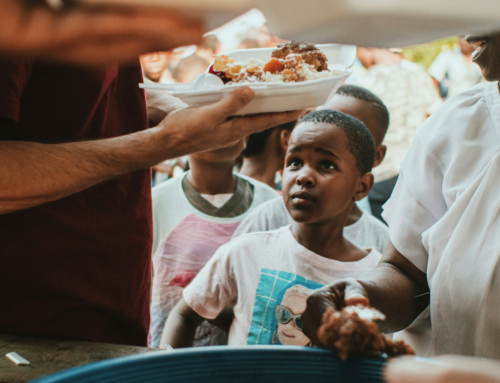
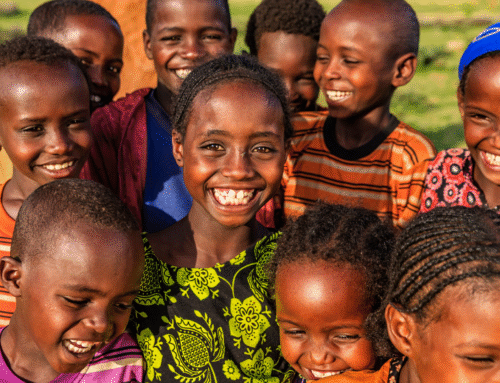

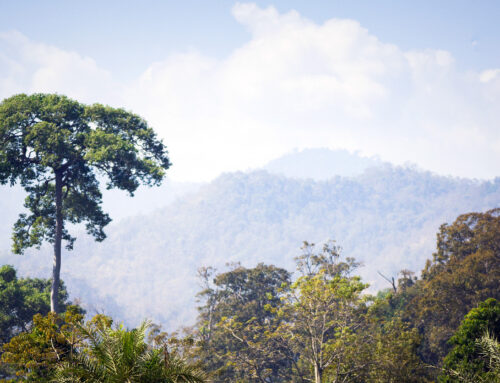
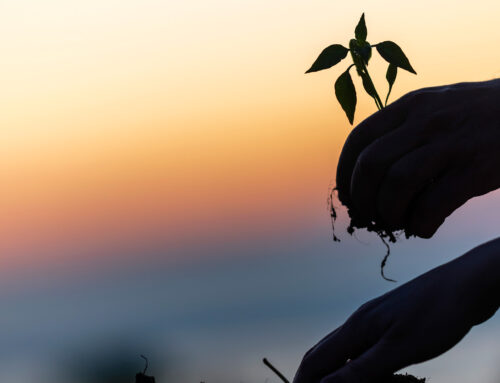

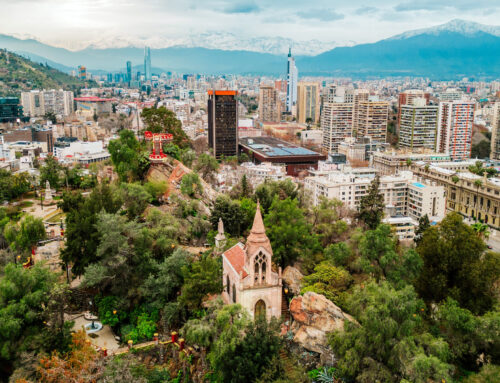







Friendship is one of human needs, very true. God demonstrated it in his fellowship with Adam in the garden of Eden.
Friendship coffee movement shows how God can help us use our daily simple life to reach out to others. Very creative of him. God bless Lukas and his coffee movement for Christ. May God raise true friends of his kingdom through FCM of Lukas, amen. The story behind the coffee and those involved reminds me of the article “honour of work” in Footsteps magazine #123. Doing work that impacts our lives and that of others positively. May God raise all the money Lukas needs get all the coffee, to reach as many souls through his coffee cup movement, amen.